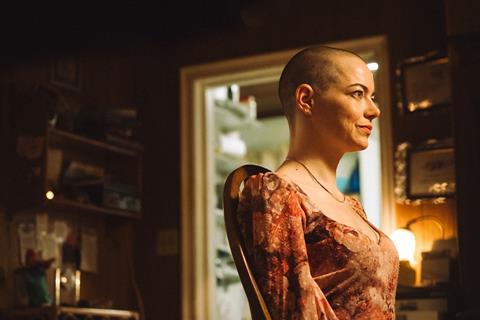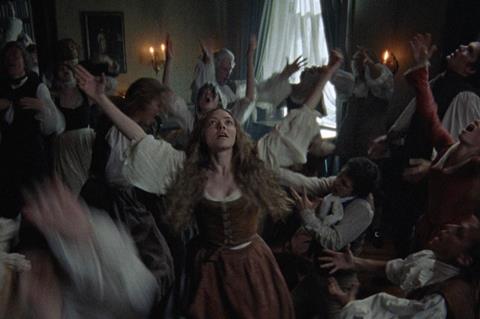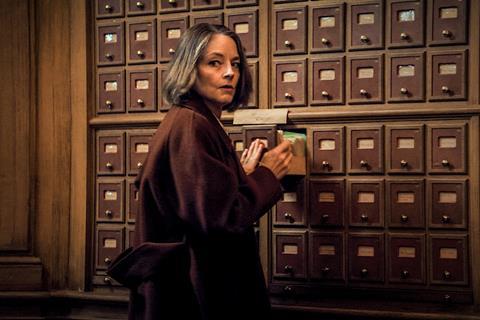
The Zurich Film Festival (ZFF) has long played a key role as a launch pad for films into the key German-speaking market of about 100 million people across Switzerland, Germany and Austria.
The festival’s autumn dates, from September 25 to October 5, also means ZFF is an important staging post in the international awards race that takes in the Baftas and the European Film Awards and culminates in the Oscars in March 2026.
Films that have previously world premiered at festivals including Berlin, Cannes, Venice, Toronto or Sundance traditionally like to use Zurich as a major platform to build momentum and buzz for awards season.

A glance at many of the films premiering at Zurich confirms this: there are German-speaking market premieres for a string of titles that recently won awards buzz at Venice, including Noah Baumbach’s Jay Kelly, Guillermo del Toro’s Frankenstein, Olivier Assayas’ The Wizard Of The Kremlin, Benny Safdie’s The Smashing Machine, Mona Fastvold’s The Testament Of Ann Lee, Luca Guadagnino’s After The Hunt and Yorgos Lanthimos’ Bugonia.
Making their European premieres after bowing at Toronto are titles such as James Vanderbilt’s Nuremberg, Nia DaCosta’s Hedda, Hikari’s Rental Family, Philippa Lowthorpe’s H Is For Hawk, Derek Cinanfrance’s Roofman, David Michod’s Christy and James McAvoy’s California Schemin’.

Cannes titles including Richard Linklater’s Nouvelle Vague, Rebecca Zlotowski’s A Private Life, Harry Lighton’s Pillion, Tarek Saleh’s Eagles Of The Republic also receive gala premieres at Zurich.
Meanwhile Zurich’s main competition programme is home to smaller festival gems looking to build word of mouth and profile, including Ted Evans’s Retreat, Joscha Bongard’s Babystar, James Sweeney’s Twinless and Shih-Ching Tsou’s Left-Handed Girl.
Track record
In 2022, Edward Berger’s All Quiet on the Western Front had its European premiere at Zurich, shortly after its world premiere at Toronto. The ZFF proved to be a significant additional platform for the film, which went on to win four Oscars.
ZFF festival director Christian Jungen suggests studios and streamers will look to make a splash at, say, at a top-tier festival like Venice through reviews and red-carpet pictures and then consolidate the buzz at Zurich.
“[After Venice] they use other festivals for junkets, masterclasses with their talent and for talent to accept awards,” he says. ”The race towards the Oscar is very long. If you don’t have a follow-up, it’s not going to work. That is where many fall festivals such as Zurich come into play.”
The Academy of Motion Picture Arts and Sciences (AMPAS) has internationalised its membership in recent years in a bid to make the Oscars a more global event. At least 20% of Oscar voters are now based outside the US , with international festivals playing a key role in reaching potential voters.
“Many people decide to do their second important screening of their film in Zurich,” says ZFF vice director Reta Guetg. “It’s a huge honour for us and it’s very beneficial to these films.”
Accordingly, plenty of talent is making its way to Zurich this year to bang the drum for their films. The festival is hosting master classes by Dakota Johnson, who comes with Michael Angelo Covino’s Splitsville, as well as Wagner Moura (The Secret Agent), Noah Baumbach (Jay Kelly), Colin Farrell and Edward Berger (Ballad Of A Small Player), Russell Crowe (Nuremberg), Claire Foy (H Is For Hawk), Benedict Cumberbatch (The Thing With Feathers), Hildur Gudnadottir (Hedda) and James McAvoy (California Schemin’).
Meanwhile, Russell Crowe and Claire Foy are among those being presented with awards at ZFF this year.
Streamlined programme
Guetg says that over the past two years Zurich has sought to streamline its programme, selecting fewer films but putting more emphasis on “the films that people will talk about” or that will run for awards. In total, the programme runs to 114 films. “We try to really use our network and our skills to programme the best programme to be relevant.”
Casting his eye over the programme, Jungen believes the films auger well for the industry – and for awards season.
“It seems cinema is really coming back in terms of quality. After some rather challenging years, there are lots of good films from all over the world and from the US.
“There are so many films where you see a big star doing something completely new, whether it’s The Rock in The Smashing Machine where he suddenly is a subtle character actor, probably also with Oscar potential, whether it’s Channing Tatum making the transition into character acting [in Roofman], or Jodie Foster playing in a French movie, speaking French [in A Private Life]. So cinema can surprise us again. Stars can surprise us again.”















![[L-R]: Amanda Villavieja, Laia Casanovas, Yasmina Praderas](https://d1nslcd7m2225b.cloudfront.net/Pictures/274x183/6/4/1/1471641_pxl_20251224_103354743_618426_crop.jpg)









No comments yet